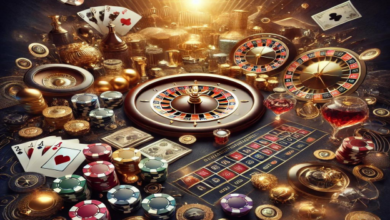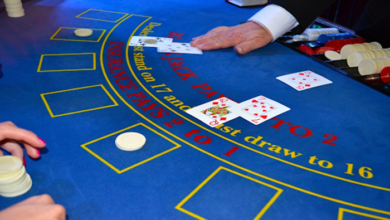Lotology: Meaning, Origins, and Applications in Modern Life

Introduction
In the vast world of disciplines, new terms and ideas frequently emerge, each contributing to a broader understanding of the world. One such term that has garnered attention in recent years is “Lotology.” But what is the meaning of Lotology, and why is it becoming more prevalent? This blog post delves into the definition, history, applications, and significance of Lotology, shedding light on a concept that is rapidly gaining traction.
Lotology refers to the study of chance, randomness, and probability in various aspects of life. Derived from the word “lot,” which historically referred to a drawing or selection process that relies on chance, Lotology examines how chance events and random occurrences influence outcomes in areas such as games of chance, probability theory, and even personal decisions. The meaning of Lotology is closely tied to the understanding of randomness and its role in the unpredictable nature of the world.
In this post, we will explore the meaning of Lotology in greater detail, including its historical roots, its impact on modern life, and its applications across different fields. Let’s embark on this intellectual journey to unravel the mysteries of Lotology.
The Historical Roots of Lotology
To fully understand the meaning of lotology, it is essential to trace its origins. Lotology is not a modern invention but rather a concept with deep historical roots. The term “lot” itself can be traced back to ancient times, where it was often used in the context of decision-making. In many cultures, lots were cast to make choices or settle disputes, a practice that still continues in certain forms today, such as in lotteries or drawing straws.
In ancient Greece and Rome, casting lots was a method of making decisions or determining outcomes when no clear answer was available. The term “Lotology” likely emerged as scholars and philosophers began to study the randomness of these decisions, leading to the modern academic field that examines chance and probability. By examining how randomness shapes events, Lotology connects us to ancient practices while also offering valuable insights into modern decision-making processes.
As the meaning of Lotology expanded over time, its connection to mathematics and statistics became more evident. With the advent of probability theory in the 17th century, Lotology began to take on a more scientific character. Scholars like Blaise Pascal and Pierre-Simon Laplace helped formalize the study of probability, laying the foundation for what would later evolve into the comprehensive field of Lotology.
Lotology and Probability Theory: Understanding the Link
At the heart of Lotology lies probability theory, a mathematical framework that models the likelihood of various outcomes in random events. The meaning of Lotology is inextricably tied to the principles of probability, as it seeks to explain how chance events can be understood, quantified, and predicted.
Probability theory was formalized in the 17th century, thanks to the groundbreaking work of mathematicians like Blaise Pascal and Pierre de Fermat. These early pioneers began to explore the ways in which random events could be modeled mathematically, leading to the birth of the field of statistics.
In the context of Lotology, probability theory provides the tools to analyze and predict random events, such as the outcome of a dice roll, a coin toss, or even the chances of winning a lottery. By applying probability theory, Lotologists can assess the likelihood of certain outcomes, offering a deeper understanding of how randomness works and how it can be harnessed in various situations.
The meaning of Lotology in relation to probability is not limited to games of chance. It also extends to more complex scenarios, such as predicting weather patterns, modeling stock market fluctuations, or analyzing genetic variation. In all these cases, Lotology helps us understand how randomness influences the outcomes of seemingly unpredictable events.
Lotology in Modern Life: Applications in Everyday Decisions
The meaning of Lotology extends far beyond academic theory and scientific studies. In modern life, it influences a wide range of decisions, both big and small. From the games we play to the choices we make in our daily routines, Lotology is at work, shaping outcomes in ways we may not even realize.
In the context of entertainment, Lotology plays a central role in games of chance. Lotteries, bingo, slot machines, and other forms of gambling all rely on randomness to determine winners. The meaning of Lotology in these games is clear: it governs the unpredictability of the outcome, ensuring that no player has an inherent advantage over another. While some people may try to beat the odds through strategy or patterns, the randomness inherent in these games is what makes them fair and exciting.
Beyond the realm of gambling, Lotology is also present in personal decision-making. For example, some individuals use random number generators or flip a coin to help them make tough choices, from deciding what to eat for dinner to choosing between job offers. This informal use of Lotology demonstrates how randomness can sometimes provide clarity when faced with indecision.
Even in the world of business, Lotology plays a role. Startups and entrepreneurs often rely on the unpredictability of the market to drive innovation. The success or failure of a product can hinge on factors such as consumer interest, competition, and timing, all of which involve an element of chance. By understanding the meaning of Lotology, business owners can better navigate these uncertainties and adapt to changing circumstances.
Lotology and Its Role in Scientific Research
Lotology is not only a concept for the casual observer or gambler; it also has a profound impact on scientific research. In fields such as genetics, astronomy, and climate science, Lotology helps scientists account for the randomness and unpredictability inherent in their work.
In genetics, for instance, the inheritance of traits is governed by random processes. The combination of genes inherited from both parents determines the characteristics of offspring, and this process is subject to chance. Understanding the meaning of Lotology in genetics can help researchers predict the likelihood of certain traits being passed down, leading to insights in fields like medicine and agriculture.
In astronomy, scientists study the random motion of celestial bodies, the formation of stars, and the behavior of galaxies. The seemingly random distribution of stars and planets can be modeled using Lotology, helping astronomers understand the forces that govern the universe. By applying Lotology, researchers can make predictions about cosmic events, even though the exact outcomes may remain uncertain.
Similarly, Lotology is integral to the study of climate change. Weather patterns are inherently unpredictable, and while meteorologists can make educated guesses about future conditions, the randomness of atmospheric systems often leads to unexpected outcomes. By incorporating Lotology into climate models, scientists can better prepare for the unknown and adapt to changing environmental conditions.
The Psychological Aspects of Lotology: Understanding Human Behavior
While Lotology is often associated with mathematics and science, it also has a psychological dimension. The meaning of Lotology extends into the realm of human behavior, as people often rely on chance in decision-making, even when the outcome may be uncertain.
One of the most well-known psychological phenomena related to Lotology is the concept of “gambler’s fallacy.” This is the belief that past outcomes in a game of chance influence future results, even when the events are independent. For example, a gambler might believe that if a coin has landed on heads several times in a row, tails is “due” to appear. In reality, the probability remains the same, and the outcome is entirely random. Understanding the meaning of Lotology can help individuals recognize and overcome such biases, leading to more rational decision-making.
Another psychological aspect of Lotology is the role of risk-taking. People’s attitudes toward risk and uncertainty can significantly affect how they approach decisions in areas such as investments, relationships, and career choices. Lotology can help explain why some individuals are more comfortable embracing risk, while others prefer to play it safe. By examining the meaning of Lotology in psychological terms, researchers can gain insights into the ways people cope with uncertainty and randomness.
Future Implications of Lotology in a World of Increasing Uncertainty
As we look toward the future, the meaning of Lotology becomes increasingly relevant. In a world where technological advancements, social changes, and global crises often seem unpredictable, understanding how randomness works can help individuals and organizations adapt to uncertain circumstances.
In the field of artificial intelligence (AI), for example, Lotology can play a critical role in decision-making algorithms. As AI systems are designed to make choices based on vast amounts of data, they must account for the randomness and unpredictability inherent in real-world scenarios. By integrating Lotology into AI models, developers can create systems that are more resilient and capable of handling uncertainty.
Similarly, as climate change accelerates and new challenges emerge, understanding the role of chance and randomness will be crucial for effective problem-solving. Lotology can help policymakers make decisions in the face of uncertainty, whether they are addressing environmental crises or navigating geopolitical shifts.
In an increasingly complex world, the meaning of Lotology will continue to evolve, offering new insights into how randomness shapes our lives. By studying Lotology, we can better understand the forces that drive change and learn to navigate the unpredictability of the future.
Conclusion
Lotology, with its focus on randomness, probability, and chance, is a fascinating field that influences a wide range of disciplines, from gambling to scientific research and even personal decision-making. By understanding the meaning of Lotology, we can gain valuable insights into the ways randomness shapes our lives and the world around us.
Whether in ancient times or modern-day society, the concept of Lotology continues to be relevant and essential. As we navigate an increasingly uncertain world, embracing the principles of Lotology can help us make sense of the randomness that governs much of our existence. From personal choices to global challenges, the study of Lotology offers us a way to better understand and cope with the unpredictability of life.
FAQs
- What is the meaning of Lotology? Lotology is the study of chance, randomness, and probability, examining how random events influence outcomes in various areas of life.
- How does Lotology relate to probability theory? Lotology is closely tied to probability theory, as it provides the mathematical tools to analyze and predict random events.
- What are some applications of Lotology? Lotology is applied in fields like gambling, business, science, psychology, and even decision-making in everyday life.
- Can Lotology help with personal decision-making? Yes, individuals often use random methods such as coin flips or number generators to help make decisions, reflecting the influence of Lotology.
- How is Lotology used in scientific research? Lotology plays a role in fields like genetics, astronomy, and climate science, helping researchers understand and predict random processes and outcomes.




